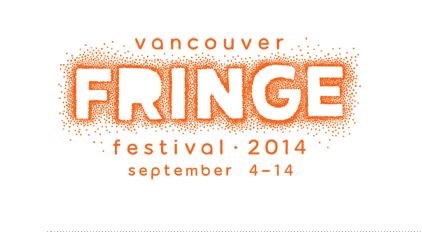In the weeks since I withdrew my candidacy for park board, many people have contacted me. I’ve received words of encouragement, a vintage self-help book about the Age of Aquarius and a note of condolence from the Vancouver Fringe Festival, which celebrates its 30th year this September.
The Fringe staff wanted to say how sorry they were that a taped monologue from my own Fringe play I staged in 1999 had somehow called in to question my fitness for office. They were shocked and wanted to know what they could do to help.
My play The Make Out Club, ran at the Fringe 15 years ago when the festival lived mostly in makeshift theatre spaces on Commercial Drive. I was a theatre student with a quirky script idea. The cost to apply was nominal, under $100, something I could afford. Entries were placed in a hat and selected without a jury or censor. I felt lucky to win.
The premise of my show was very postmodern. The lead character, Trish Kelly, 50 years old and the owner of a sexy cabaret, was looking back on the pivotal events in her life. I played myself at 22 and my mother performed the opening prologue as me at 50. The play did well. We were sold out or almost sold out for the entire run, and the Province newspaper gave us a good review.
Looking back at the program guide, I’m not sure why anyone chose my play from the more than 100 productions listed. The description was very Fringe, but also cryptic: “This isn’t my real life, this is my future. This is what happens when you try so hard to be not like them.” Well, that was what being 20 years old felt like.
I can guess the title and the words “Sexy Drama” under the genre heading appealed to some. Audience members did hear about things like masturbation and desire, but they also heard the fears of a young person who didn’t want to make the mistakes of her parents or find herself alone in the world.
Mentioning sex wasn’t a trick to pull in audience members. Even at that young age, I already believed that talking about sexual agency and desire were normal parts of everyday life, just like owning up to loneliness.
I convinced my mother to play me — that was a coup. My mother had experienced profound hearing loss in her 40s, which meant she could not hear the audience’s response to her jokes or my directions. Also, given the play’s setting of a sex positive cabaret, my mother was costumed in a bustier, tutu and Doc Martens. She was, may she rest in peace, a good sport, and a pretty funny actor, too.
Life has not developed for me as the play imagined it might, and that’s probably a good thing. In 1999, I couldn’t have guessed how development pressures would make Vancouver so difficult for artists. Venues of the size I performed in are long gone, and many artists have left or will soon leave for more affordable jurisdictions.
The Fringe Festival has definitely become more sophisticated. It still offers the un-juried lottery model that provides a level playing field to established and young artists, but the festival now resides on Granville Island and includes its own bar with musical acts and a new dramatic works series that features productions of published plays instead of the “scratch” works that have been the festival’s mainstay.
Scanning the program guide, I don’t think we need to worry about the Fringe Festival getting too highbrow. Much of the content describes itself as weird, poetic and naughty and there are adequate warnings of profanity and nudity. You will still find theatre happening in surprising places that can’t be called proper theatres.
The Fringe Festival has asked me to perform at their cabaret called the Fringe Social. I’m writing something new for that night, which I’ll endeavour to make funny and poignant and all the other good things about Fringe material. I have to thank the Fringe for once again including my voice and my hope.
I hope we will all still be around in 2026 when I actually turn 50, not just because I look forward to a long life, but because we will always need festivals like the Fringe that make space for the brave young voices on the margins.



